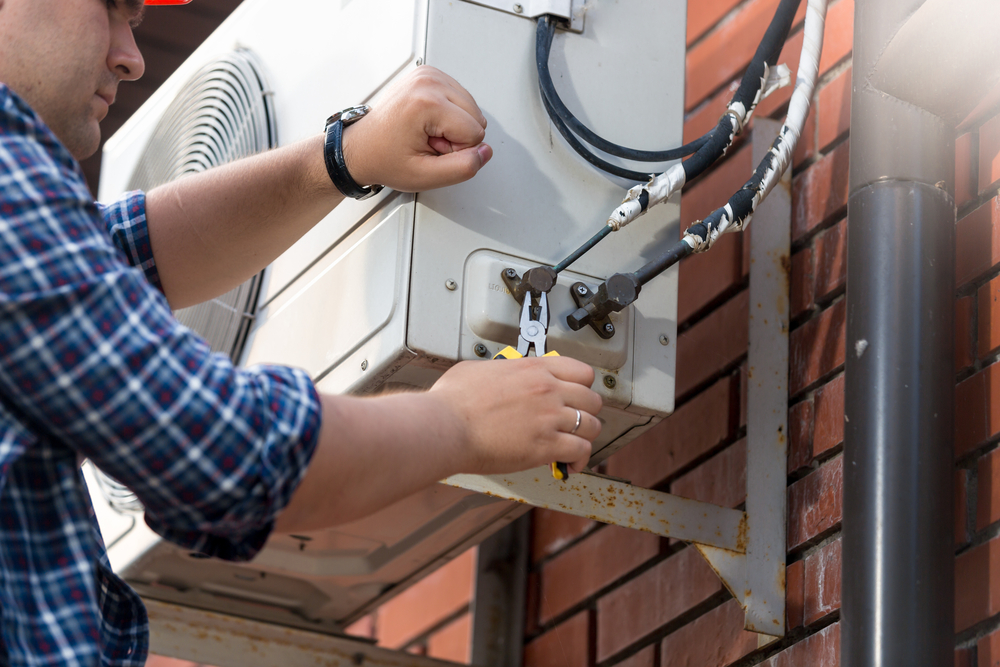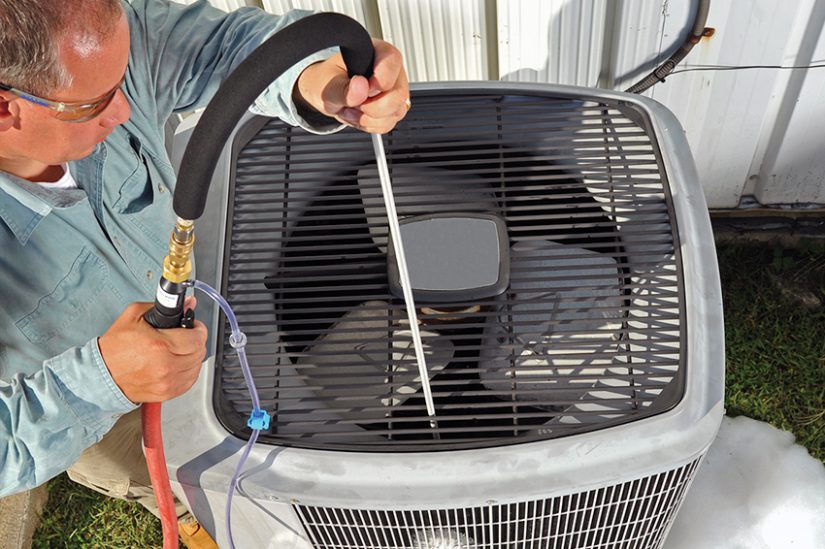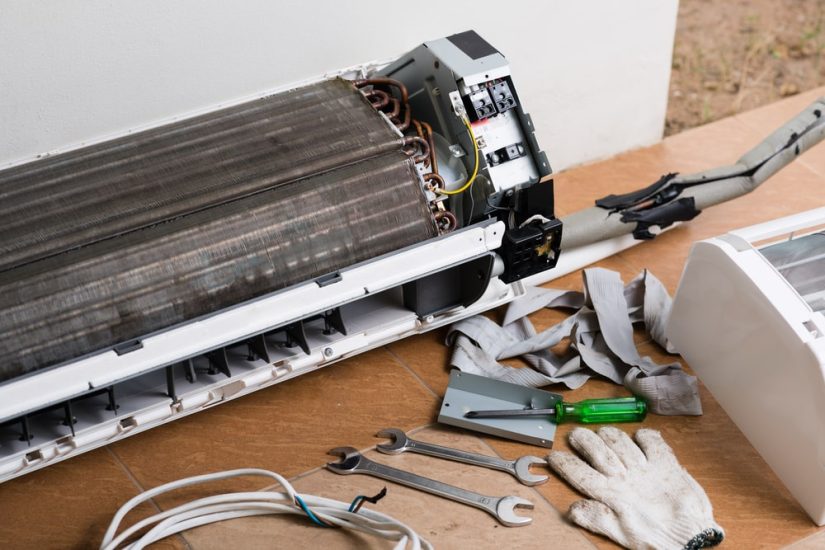
In Houston, it’s essential to have an operational air conditioner. When temperatures rise, your air conditioner will be working overtime to keep you and your family cool and comfortable in your home.
Naturally, it’s a problem when your HVAC system stops working or is operating below peak efficiency. For an efficient AC unit, all of its parts must function together. One of the most important parts of any home AC is the compressor—and when this part is not working, it can cause major trouble.
Read on to understand why the AC compressor is important to your HVAC system and how to spot trouble. If you see signs that your compressor is failing, you should not delay in calling for air conditioning repair to get things up and running again.
What Happens When the AC Compressor Goes Bad?
The air conditioning compressor in your home’s AC unit is one of its most integral parts. It’s often referred to as the heart of the air conditioning system because of how it pumps refrigerant.
You may start to notice that when your AC compressor fails, less air is blowing from your vents. This air may also be warm, offering no comfort whatsoever in your home. The thermostat may be set to a cool temperature, but the ambient temperature is reading higher than this setting.
In addition to these early warning signs of a bad AC compressor, you may see that your HVAC system keeps running without cooling your home. This is due to the refrigerant not being pumped through as it should be.
Should these things escape your attention, the higher power bill likely won’t go unnoticed. When your AC compressor goes bad, it’s time to get an expert AC company out to fix the issue fast.
Can You Run an AC with a Bad Compressor?
The short answer to this question is yes, but you won’t want to do that and cause more damage to your air conditioning system. Since AC compressors are such an instrumental part of these AC systems, you will want to get repairs made as soon as possible.
In your AC system, the refrigerant is what takes the heat from your home and turns it into colder air. AC compressors play a vital role here as they are part of the outside unit. The compressor moves this high-pressure gas through the coils and also transfers energy to it, enabling it to cool down the air. If not for your compressor, your refrigerant would not be able to cool your home.
A compressor is like a motor. It takes the refrigerant in its gas form and applies pressure to it. This pressure causes its temperature to rise and then it moves through the coils. When the refrigerant is in the coils, it releases its heat and turns into a cool liquid form.
This liquid then goes to the indoor unit and through another phase change, converting back into cool gas and absorbing heat from your indoor air. With a normally functioning compressor, this cycle continues over and over again.
However, when you have a problem with your air conditioner’s compressor, only warm air will come out of your vents. You will want to call for a repair as soon as possible to get things working right with your AC unit.
The graphic below shows just how instrumental the air conditioner compressor is to the proper functioning of your AC unit.

How to Spot the Signs That Your Home AC Compressor Is Bad
It’s fairly easy to tell if you have a faulty compressor on your hands. These are the seven bad AC compressor symptoms that you will want to watch for and alert your air conditioning repair company about.
1. Your Air Conditioner Is Making Unusual Noises
Air conditioners should make ambient noises as they run. When there are electrical problems or failures in a faulty compressor, your AC unit may make odd sounds. Strange noises such as clunking, rattling, screeching, clattering, or even growling are common signs that the compressor is bad. Additionally, if you can see when the unit vibrates, you should call an HVAC professional immediately.
2. Dirty Coil and Filters
Your air conditioning unit and the compressor may completely shut down if you have an excessive buildup of dirt and debris. Evaporator coils may stop working if there is a blockage with the condenser unit. Along with clogged air filters, this puts far too much pressure on your air compressor, making it overheat.
If you notice that your air conditioning compressor keeps overheating, it may be time to replace the unit. An HVAC professional can help you clean the condenser coils, though you should do your part to ensure air flows freely by moving obstructions and blockages out of the way. You should also change the air filter at regular intervals to prevent this compressor issue from arising again.
3. Your AC Stops Working
If your AC won’t work, you may be able to tell if you have an air conditioning compressor problem by heading to your electrical service panel. Open it up and check the circuit breakers. Each circuit breaker can be set into three different positions—on, off, and in the middle. For any circuit breakers in the middle, switch them to the off position before switching them back on.
You should also check the fuse box to make sure it isn’t a blown fuse. This box can be found outside your home by the condenser unit. If you feel comfortable with it, shut off the power supply near your outdoor units, take the fuses out of the fuse box, and use a multimeter to conduct a continuity test. If a fuse is blown, that’s an easy fix for someone with DIY skills.
However, if you see that there is no tripped circuit breaker among your circuit breakers and the fuses are all working as they should be, you likely have a dead compressor.
4. Capacitor and Starter Relay Problems
The capacitors and starter relays in your air conditioner supply power to the air compressor. The capacitor is the part that provides the necessary power to run the outer fan as well as the blower motor and compressor. The starter relay transmits power to the compressor that comes from the capacitor. These compressor problems mean that the capacitor is not functioning properly and will require an HVAC expert to repair it.
5. Your AC Isn’t Blowing Cold Air
When your AC is blowing out warm air, you’ll want to check your air filters and condensate lines. If those are clean and clear and you don’t think there’s a refrigerant leak, the compressor is the most likely culprit. When it comes to compressor problems, this part can fail in many ways. One way is by continuing to run and create airflow in your home. But if it isn’t cool air, the compressor is on its last legs.
Either way, a lack of cold air blowing or even hot air coming out is a sign that you need AC repair fast. If it does turn out to be a refrigerant leak, it can be a potentially hazardous situation that will call for immediate repairs.

6. Problems with the Circuit Breaker
The circuit breaker connected to your air conditioning is designed to trip to protect your home from fire hazards. But if this circuit breaker keeps on tripping and your air conditioning seems to be behaving differently, it could be the compressor overloading the circuit with too much power. If the switch linked to your air conditioner is hot, it’s an urgent matter for professional AC repair services.
7. Low Air Flow from Your Air Vents
One of the earliest signs of compressor troubles is when your air conditioning is still humming along, but you can feel less air coming out of the air vents. In some cases, you may hear the air conditioning running, but feel nothing coming out—not hot air or cold air. Cooling power is essential for your best air quality. Before things get worse, contact a professional for AC repair in Houston.
Why Do You Need Your Air Compressor to Work?
The compressor is an essential component in your system to keep your home cool. When it’s malfunctioning or worn out, it can impact your energy efficiency. While you can’t always prevent things like this from breaking, knowing what to look for will help you spot problems before you’re stuck sweating it out on the hottest day in Houston.
Without a working compressor, you won’t get the cool air you need in your home. In the absence of cool air, your home will quickly become uncomfortable. If you’ve noticed any of the seven symptoms outlined above, you should contact an AC company for service. HVAC professionals know exactly what to look for on these service calls. They will check for refrigerant pressure, refrigerant leaks, and a blown fuse, and inspect the entire unit to see whether it is indeed the condenser or something else.
Even if your AC is blowing out air, if it’s not cold, don’t wait until the problem becomes worse. Waiting can further wear out the parts and cause a complete breakdown of the system, which will wind up costing you more. If your AC isn’t working in Houston, whether it’s the compressor or not, be sure you call House Pro to help you quickly get things back up and running again.

